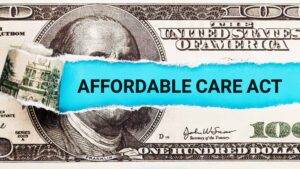
A family-friendly New Orleans CPE conference makes it easy to earn credits in the morning
4 min read
VALENTINE’S DAY FLASH SALE – Shop Tax Updates, OBBBA series and Save Now, Choose Later

In a case that should serve as a cautionary tale for all tax practitioners advising business clients, United States v. Tax and Bankruptcy Attorney, PLC and Kenneth Keate demonstrates the severe personal consequences that can result from improper handling of employment taxes. The District Court granted summary judgment against both a tax professional’s business and the professional personally, highlighting the IRS’s aggressive pursuit of trust fund tax violations, particularly when committed by those who should know better.
Kenneth Keate, an attorney who specialized in tax and bankruptcy, was the sole owner and president of Tax and Bankruptcy Attorney, PLC (“TAB”). The IRS assessed several liabilities against both Keate and his business:
Crucially, Keate admitted he was the responsible person for collecting, accounting for, and paying federal income and FICA taxes withheld from TAB’s employees. He also admitted to directing payment to other creditors ahead of the United States despite knowing about TAB’s unpaid trust fund taxes.
For trust fund taxes (withheld income and FICA taxes), employers must hold these amounts “in trust” for the federal government until paid (Westerman v. United States, 718 F.3d 743). A “responsible person” who “willfully” fails to pay trust fund taxes can be held personally liable. “Willful” means a “voluntary, conscious, and intentional act, such as the payment of other creditors in preference to the United States” (Westerman, 718 F.3d at 748).
The United States established the presumption of correctness through Forms 4340, IRS Account Transcripts, and employee declarations. Keate and TAB failed to respond to the summary judgment motion or provide any evidence refuting the assessments. Keate’s admissions established both his responsible person status and willfulness in failing to pay trust fund taxes. The court awarded the United States $77,143.93 against TAB (plus statutory interest and additions) and $85,931.59 against Keate personally (plus statutory interest and additions).
The Keate case serves as a stark reminder that the responsibility for trust fund taxes cannot be avoided through non-payment or non-participation in legal proceedings. When advising clients facing cash flow challenges, practitioners should emphasize that employment tax obligations must take priority over other creditors, and that proper documentation and timely response to IRS proceedings are essential for mitigating potential personal liability.






Subscribe to our news, analysis, and updates to receive 10% off your first purchase of an on-demand digital CPE course.